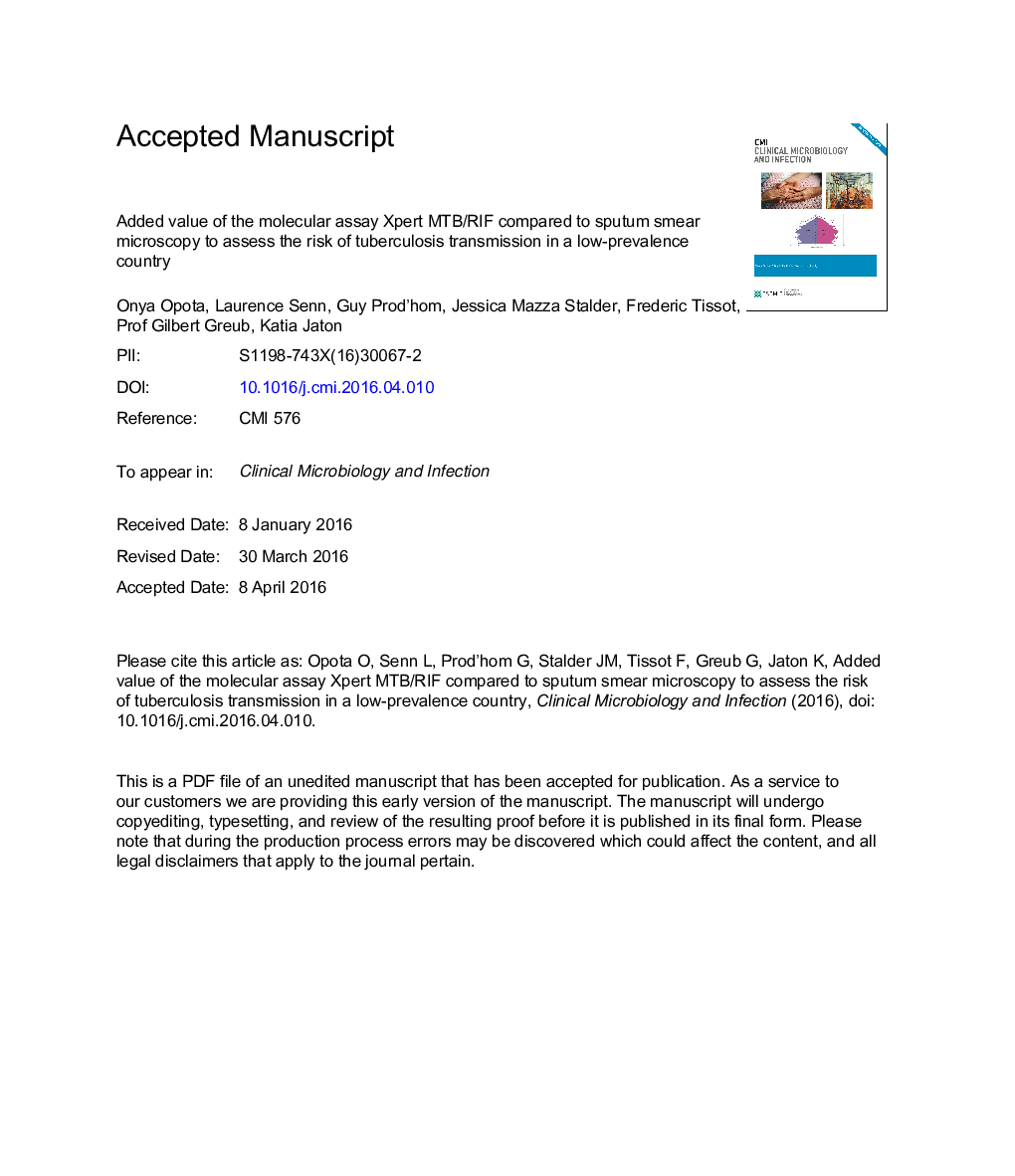| Article ID | Journal | Published Year | Pages | File Type |
|---|---|---|---|---|
| 6128816 | Clinical Microbiology and Infection | 2016 | 22 Pages |
Abstract
Airborne precautions are required at hospital admission for patients with suspected pulmonary tuberculosis. The isolation is maintained until 3 serially collected sputum smears are acid-fast bacilli negative, a time- and labor-intensive method with limited sensitivity and specificity, which has a great impact on patient flow management. We evaluated the possibility of replacing the result of microscopy by the semiquantitative result of the molecular point-of-care test Xpert MTB/RIF to assess patients' transmission risk to quickly guide airborne isolation decisions in low-endemic countries. The performance of the Xpert MTB/RIF, used as a first-line test, was compared to the results of microscopy for specimens (n = 242) collected from May 2010 to December 2014 in Lausanne, Switzerland. The sensitivity and specificity of Xpert MTB/RIF were 91.5% (65/71) and 99.6% (170/171), respectively, vs. 64.8% (46/71) and 94.2% (161/171) for microscopy. Samples with negative Xpert MTB/RIF were all smear negative for Mycobacterium tuberculosis (negative predictive value, 100%). The semiquantitative results of Xpert MTB/RIF-high, medium, low or very low-were found to correlate with acid-fast bacilli detection: positive predictive value of 100% (6/6), 96.5% (27/28), 52.2% (12/23) and 11.1% (1/9) respectively. Finally, when including clinical criteria, we identified 11 smear-negative but Xpert MTB/RIF-positive patients with a significant transmission potential. In conclusion, our data support the introduction of an Xpert MTB/RIF-based strategy as a replacement of smear microscopy for a faster and more accurate management of tuberculosis patients' transmission risk in a low-prevalence country.
Related Topics
Life Sciences
Immunology and Microbiology
Microbiology
Authors
O. Opota, L. Senn, G. Prod'hom, J. Mazza-Stalder, F. Tissot, G. Greub, K. Jaton,
